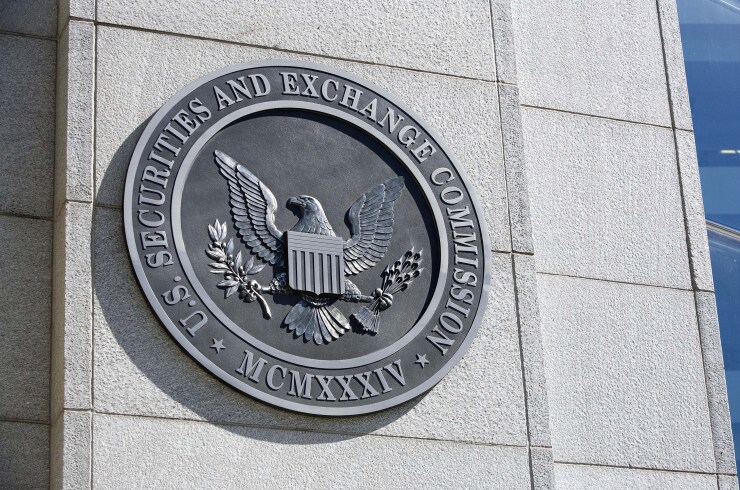The Securities and Exchange Commission may make corporations reveal more about climate risks in key regulatory filings, a push that Wall Street and the biggest tech companies say will lead to a barrage of shareholder lawsuits.
Top SEC officials want the disclosures to carry the weight of quarterly or annual reports, said four people with knowledge of the matter, exposing companies to increased legal peril if their assessments turn out to be wrong. One option the SEC is strongly considering would require the disclosures to appear in year-end financial statements, also known as 10-Ks, two of the people said.
While banks and tech giants largely support Washington’s push on climate change, they’ve argued that accurately predicting how it will affect their businesses won’t be easy because disclosures would rely on imprecise assumptions. For that reason, Amazon.com Inc., Bank of America Corp. and Facebook Inc. are among corporate titans that have urged the SEC to keep the reports out of filings that detail earnings and other financial results.

The SEC’s coming rules are already a flashpoint in Washington even though the agency has said little about what it plans to propose.
Policy fight
Democratic lawmakers are demanding tough requirements, contending that investors are desperate for more information on how environmental threats are reshaping entire industries. But Republicans counter that the SEC should focus on enforcing the nation’s existing securities laws, not wading into controversial political issues. The regulations are also of high interest to the Biden administration, which has made protecting the environment a top policy focus.
The SEC, led by Chair Gary Gensler, has signaled the rules could be proposed as soon as
Preliminary plans, which are subject to change, are for rules that would likely require public companies to disclose the business risks posed by climate change, as well as information on how firms’ operations affect the environment., according to two of the people, who like others asked not to be named in discussing internal deliberations. The agency is also considering making corporations reveal how they could be impacted by new environmental regulations, the people said.
The SEC will have to make a number of critical decisions, including where to require the disclosures, what information should be reported and whether accounting firms should formally audit companies’ assessments. Such topics are already prompting lobbying fights.
‘Arbitrary mandates’
“We’ve had extensive meetings with the SEC and provided recommendations on how to strengthen, not stifle the business community,” U.S. Chamber of Commerce President and Chief Executive Officer Suzanne Clark said during a June 22 event that the group hosted. The SEC should avoid “arbitrary mandates and expansive regulations,” she added.
A big concern for companies and executives is that they could face penalties for making material misstatements or omissions, particularly if disclosures are in 10-Ks.
In a June 13
Amazon, Facebook, Alphabet Inc. and EBay Inc. made a similar argument in a June 11
“Given that climate disclosures rely on estimates and assumptions that involve inherent uncertainty, it is important not to subject companies to undue liability, including from private parties,” the companies wrote.





